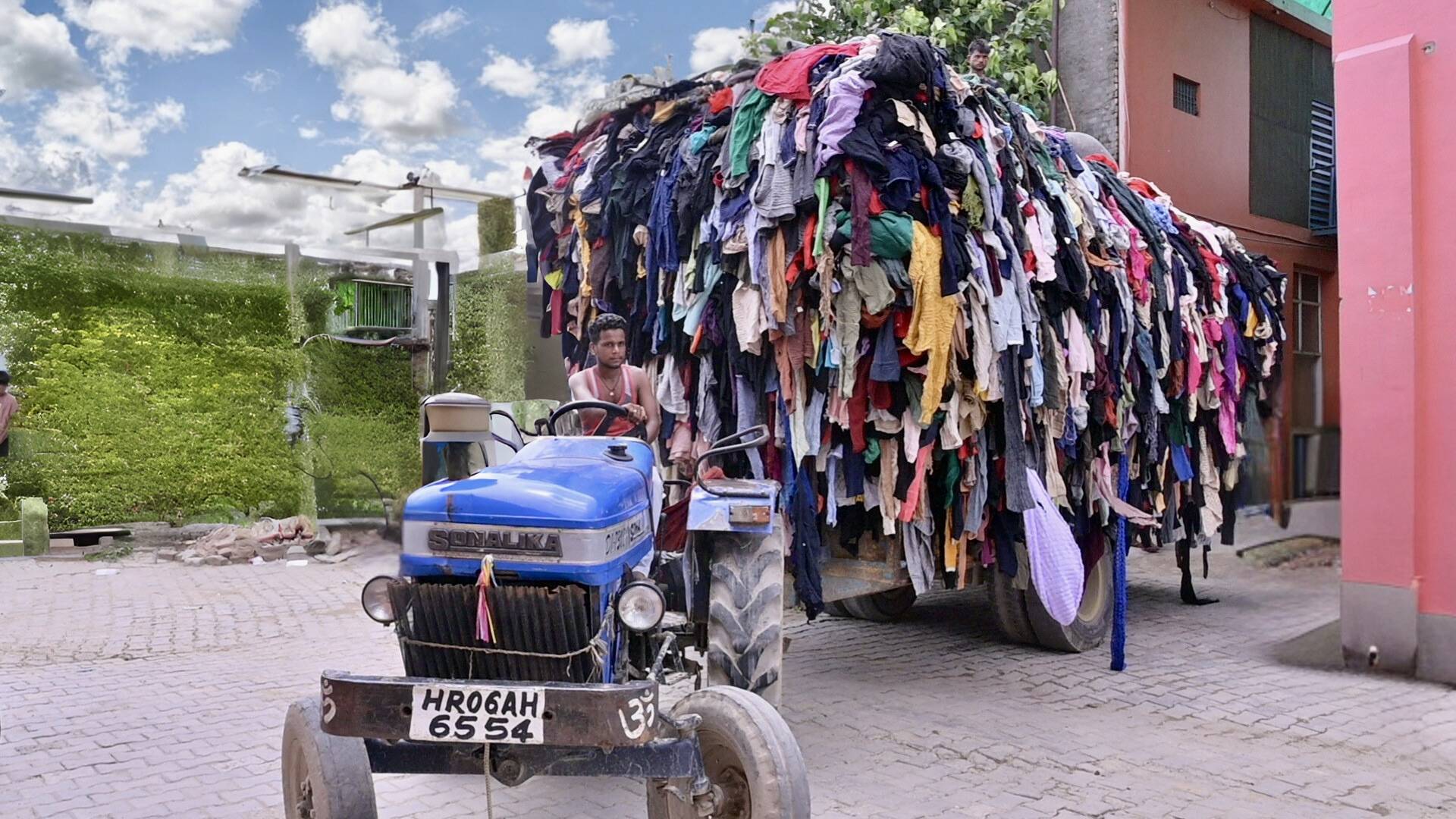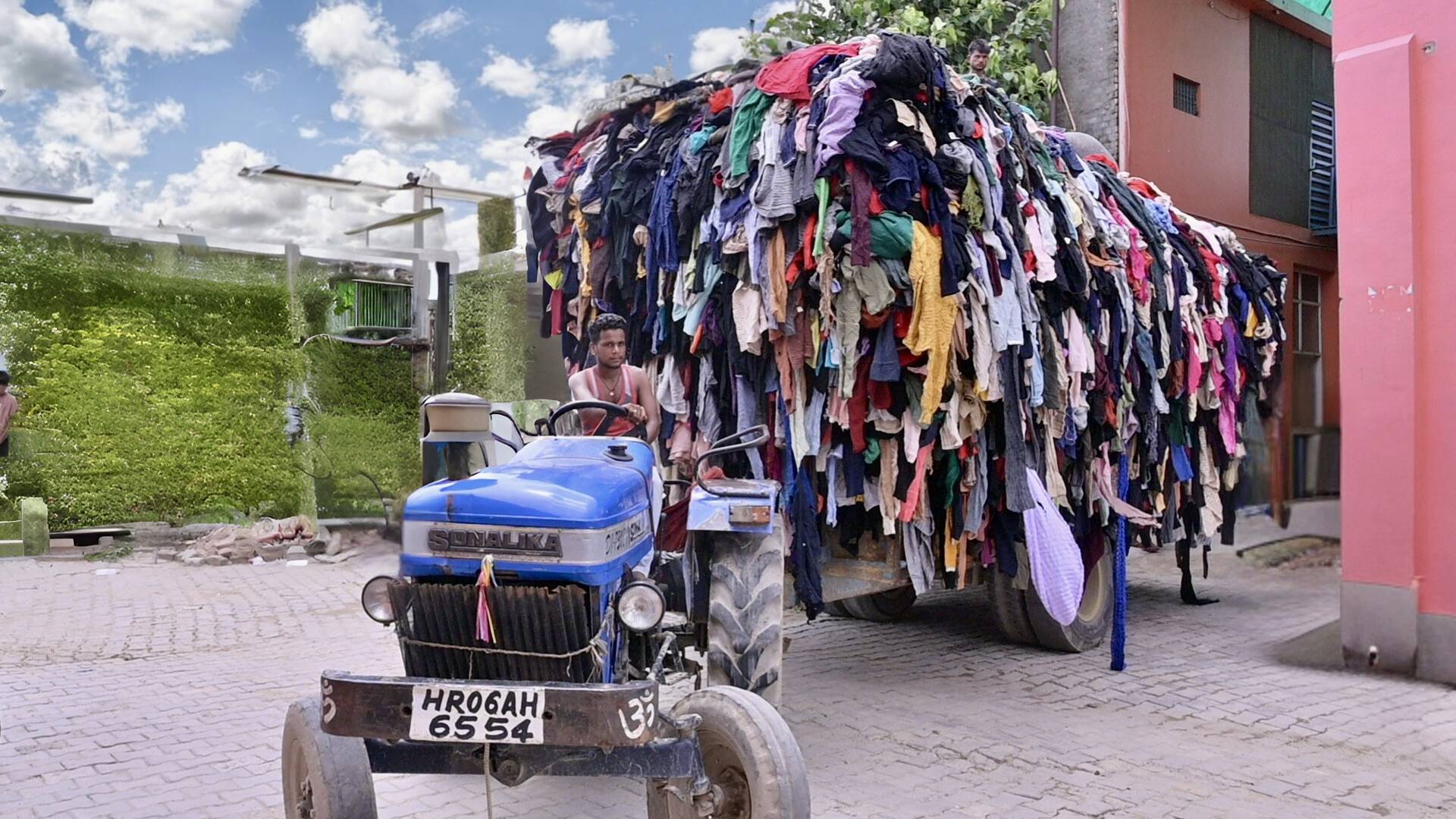
The Challenge
The Indian textile recycling industry, particularly the clusters in Panipat, Amroha, and Bhojpur, plays a critical role in the global circular economy. Panipat alone handles 60% of India's recycled textile waste, including significant imports from the European Union, and contributes to an annual export turnover of $1.7 billion. Despite their scale, these clusters face acute sustainability challenges—outdated production technology, high water and energy usage, occupational health hazards, and significant CO₂ emissions (1.4 million tonnes annually in Panipat). Additionally, workers—mostly underprivileged women and migrants—remain in low-paid, unsafe roles with limited skilling opportunities. These clusters operate in an increasingly dynamic global context, shaped by the EU's evolving regulatory landscape under the European Green Deal. Measures such as the proposed Digital Product Passport (DPP), restrictions on waste exports, and enhanced due diligence and sustainability reporting standards present both challenges and opportunities for Indian MSMEs. Meanwhile, domestic regulations like India’s Business Responsibility and Sustainability Reporting (BRSR Core) and Harmonised System of Nomenclature (HSN) tracking system demand similar alignment. However, MSMEs lack awareness, preparedness, and the support infrastructure to meet these regulations or to transition towards sustainable, circular production models. Diagnostic studies conducted by SIDBI and FMC, along with consultations with MSMEs, financial institutions, policy bodies, and support organizations, confirm strong latent willingness among stakeholders to adopt sustainability frameworks, provided the implementation is phased, inclusive, and well-supported. The proposed project, “Green Threads,” is designed as a holistic response that integrates sustainability branding, traceability, sustainable production practices, green financing, and policy ecosystem strengthening. Through this integrated model, the action aims to transform these textile clusters into globally recognized hubs of circular textile production.
The Objectives
The project aims to empower 14,800 MSMEs and 250,000 workers, over half of whom are women, across the Panipat, Amroha, and Bhojpur textile recycling clusters to transition toward a sustainable, circular, and climate-resilient model. It promotes cluster-wide transformation through five interconnected strategies, including the creation of a Sustainable Cluster Brand, the establishment of a Traceability Mechanism for Textile Waste, promotion of Sustainable Production Practices, facilitation of Green Financing, and strengthening of the Policy Ecosystem for Climate Resilience. These efforts will enable MSMEs to respond to global market demands, reduce environmental impact, and lead India’s sustainable textile transformation from the ground up.
More specifically, the project will:
- Promote the development and adoption of a Sustainable Cluster Brand (SCB) in targeted clusters to position them as reliable sources of low-carbon, ethically produced textiles.
- Develop and implement a Traceability Mechanism for Textile Waste (TMTW) to ensure transparency from input to final product, and support 25 MSMEs with Digital Product Passports (DPPs) to communicate sustainability credentials.
- Catalyze the adoption of resource-efficient Sustainable Production Practices (SPP) by supporting MSMEs in upgrading technology, reducing carbon emissions by 20%, minimizing waste, and establishing 10 Common Facility Centres (CFCs).
- Ensure access to Green Financing (GF) by mobilizing €10 million in investments through business planning, capacity building for financial institutions, and partnerships with local and high-end Business Development Service Providers (BDSPs).
- Strengthen the Policy Ecosystem for Climate Resilience (PECR) by generating six policy learning documents and hosting national and international workshops with policymakers, buyers, and industry stakeholders.
The Way Forward
- 100 MSME leaders & their supply chains adopt SCB, duly endorsed independently.
- 100 MSME leaders & their supply chain members develop & adopt TMTW, of which 25 develop Digital Product Passports (DPP) of their products for their consumers.
- 1000 MSMEs adopt SPP to reduce their carbon emissions by 20% and upcycle their products; 10 Common Facilities Centres (CFC) established for processes to improve sustainability, water treatment, waste exchange, forecast designs, test products, upgrade skills, access knowledge, innovate & implement green ideas, among others.
- 250 MSMEs invest Euro 10 million through GF models, loans, public finances, equity investments, risk sharing vehicles, blended finance vehicles.
- 250 people among Policy makers, Financial Institutions (FIs), Technical institutions, BMOs, Business Development Service Providers (BDSPs), Researchers, and Academic institutions capacitated in 5 countries for a stronger PECR.
Relation to European Green Deal, Circular Economy and Climate Change
The proposed action is strongly aligned with EU priorities under the European Green Deal and its commitment to a low-carbon, resource-efficient, and circular economy. It directly addresses key challenges posed by the EU’s evolving regulatory framework on sustainability, including the proposed ban on waste exports to non-OECD countries without sustainable processing systems, and the rollout of Digital Product Passports (DPPs), Corporate Sustainability Reporting Directive (CSRD), and Corporate Sustainability Due Diligence (CSDD) obligations. By enabling Indian MSMEs—especially those embedded in EU-facing supply chains—to comply with these regulations, the action ensures continuity and growth in EU–India trade relations. Through the DPP, traceability mechanisms, and the SCB, it promotes transparency, combats greenwashing, and empowers EU consumers to make informed choices in favor of sustainable textiles. The project contributes significantly to EU Green Deal objectives by reducing greenhouse gas emissions, improving water and energy efficiency, and diverting textile waste from landfills. It enhances sustainable production, fosters inclusive industrialization, and supports green innovation. Its circular approach ensures environmental gains are embedded across the entire textile value chain—from waste handling and sorting to manufacturing and export. Additionally, the action introduces a “just transition” lens, prioritizing gender equity and skill development for women and youth, in line with EU values on social inclusion and decent work. The €10 million in green financing mobilized through this project supports both financial sustainability and EU objectives on climate-aligned investments. Finally, by generating cross-border learnings, including potential integration with the EU’s SWITCH-Asia and textile circularity initiatives in China, the action promotes global south–north cooperation, a key priority in EU external action.
Duration:
1 January 2025 - 31 December 2028Total Budget:
EUR 1,875,003.80 (EU Contribution 80%)Contact Detail:
Mr. Amit Pande
Project Director, Foundation of MSME Clusters (FMC)
Mr. Abhishek Naga
Project Manager, Foundation of MSME Clusters (FMC)
Lead Partners

Foundation for MSME Clusters (FMC)
Partners








